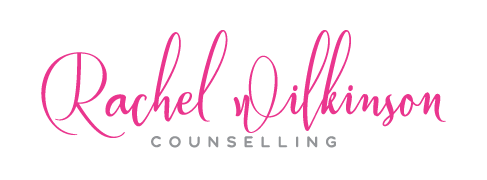Therapy – providers/cost/rebates the low down
 While the incidence of Covid-19 is now low in Australia and New Zealand, the after-effects on the economy, unemployment and mental health is still very real. Right now, there are long waiting lists to see therapists, more demand in schools for help and support for students and strain on support services. It may be confusing, but there is a range of options for help, some offer 24hour support, some you may need a referral and some you can self-refer or simply book online.
While the incidence of Covid-19 is now low in Australia and New Zealand, the after-effects on the economy, unemployment and mental health is still very real. Right now, there are long waiting lists to see therapists, more demand in schools for help and support for students and strain on support services. It may be confusing, but there is a range of options for help, some offer 24hour support, some you may need a referral and some you can self-refer or simply book online.
Therapy can assist you to make sense of your thoughts and behaviours. It can also help to speak with someone who is not part of your family or friendship group, who can be neutral. The benefit of being neutral is the therapist can listen like a friend but is trained in looking into the reasons why you may be thinking or feeling the way you are and also implementing some strategies to help you deal with these thoughts and feelings.
What’s the difference between a Psychiatrist, Psychologist, and Counsellors?
- Psychologists and psychiatrists are similar, the main difference is psychiatrists investigate the biological causes of mental illness. They can prescribe medication and can admit you to the hospital if needed.
- Psychologists focus more on the cognitive (thinking, analysing, intellect) and behavioural Psychologists can assist with problems like depression, anxiety, stress and grief.
- Counsellors provide a safe, confidential space for you to discuss issues in your life. They support you through depression, anxiety, stress and grief.
Do I need a referral to see a mental health professional?
While you need a mental health plan to see a Psychologist or Psychiatrist, you don’t need a referral to see a Counsellor. Right now, due to the impact Covid-19 has had on many families, Medicare has increased the mental health support from 10 visits to 20 visits per calendar year. Due to the high impact of financial and emotional stress, and the government doubling these supports, many practices currently have long waitlists – some up to three months or more. It is possible to find a bulk billing service, but these may also have extensive wait lists and additional travel time.
How do I get a mental health plan? Make an appointment with your doctor to have a chat about this. Stress, anxiety or depression are symptoms enough to be eligible for a health plan. You can find out more here https://www.qld.gov.au/health/mental-health/get-started/mental-health-pathways. Unless you can find a bulk billing therapist, there will be an out of pocket fee to pay. You cannot use Private health in addition to Medicare. Some private health funds like Bupa, MBP can offer rebates for some counsellors, check to see if your therapist has have a provider number.
What will it cost? Approximate fees based on Australian Psychology Society (APS) Psychotherapy and Counselling Federation of Australia (PACFA) Australian Dept of Health and Medicare. Therapists in private practice can set their own fees.
| Psychiatrist | Medicare rebate | Out of pocket fee |
| Up to $400 per hour | $228 | $172 |
| Psychologist | Medicare Rebate | Out of pocket fee |
| Up to $260 per hour | $84 | $176 |
| Counsellor | Medicare Rebate | Out of pocket fee |
| Up to $150 per hour
|
Currently, no rebate with Medicare although associations are campaigning for this on counsellor’s behalf. | $150 Follow-ups up btw $100 – $120 per hour |
Why do I have to wait so long to see a therapist?
Because, as they say in French, la merde frappe le ventilateur. (Poo has hit the fan, people.) 2020 has not been kind. There has been an increase in unemployment, isolation from family and friends, a rise in negative coping mechanisms including alcohol and violence, less money in the home, university education has been put on hold or suspended, schooling has been interrupted, because of the pandemic there has been systemic uncertainty and fear.
Alcohol dependence and domestic violence have increased in Australia
There is evidence to suggest Australians are suffering more than ever with the rise in unemployment, redundancies, relationship breakdowns and general stress and anxiety. Although the stats have not been fully collated since the pandemic, there has been an increase in national alcohol sales, with a 41% increase in alcohol consumption overall and a higher proportion of female drinkers reporting their alcohol consumption has increased ( ABA May 2020). In Australia alone, there has been an increase of 75% more internet searches for support with domestic violence. (Poate 2020).
Increase in depression and anxiety
And while there is no documented evidence to support suicide has increased at this time, feelings of despondency, depression and low mood need to be carefully monitored. The Medical journal The Lancet reported in June that we are in “unprecedented times. The pandemic will cause distress and leave many people vulnerable to mental health problems and suicidal behaviour. Mental health consequences are likely to be present for longer and peak later than the actual pandemic. According to studies conducted by Stanton et al., (2020), there has been a reduction in sleep and activity during the pandemic. This indicates while stress levels have increased, because many people have been quarantined and unable to get outdoors, movement has decreased. Physical and mental health go hand in hand, a therapist should be asking what kind of exercise you do as this impacts mood. Exercise releases endorphins and feel-good chemistry in the brain and helps to eliminate pain. When exercise increases even by a small amount, so does mood. When sleep is reduced or restless, this also impacts the ability for the body and brain to regenerate and recover.
If you are experiencing any of these symptoms, loss of sleep, anxiety, depression, feeling angry, relying on alcohol or drugs to regulate your mood, lack of appetite, feelings of helplessness or despair, you are not alone. There are experienced and trained therapists to support you. There are also many online services to help and assist.
Online and phone services
In addition to in-person services, there are many online resources available, including:
Beyond Blue for information and advice, as well as an online live chat. You can also call and speak to someone 24 hours a day on 1300 22 4636.
PANDA provides a free confidential helpline service offering support for new and expecting mums and dads who are struggling with becoming a parent. You can call 1300 726 306 to speak with a trained counsellor 9am-7.30 pm (AEST), Monday to Friday.
Lifeline for crisis support and suicide prevention services with an online live chat. You can also call them 24 hours a day on 13 11 14.
Headspace (Ages 12 – 25) 1800 650890
Suicide call back service – 1300 659 467 suicidecallbackservice.org.au (15 +)
Kids Help Line 24/7 – anytime any reason1800 55 1800 ( ages 5 -25)
PFLAG – Parents and Friends of Lesbian and Gays+
Diverse Voices – LGBTIQ+ peer to peer telephone, webchat and referral service. 1800 524 187 3pm-midnight
DV – The Centre for Women and Co this service is free for people who live or work in the Logan/Beenleigh and Redlands regions. We accept self-referrals and referrals from other organisations or doctors. Call 07 3050 3060 to speak to staff to arrange an appointment, for crisis support you can drop into the Cleveland and Logan Central offices.
In case of an after-hours emergency, call Triple 000 or DV Connect 1800 811 811.
Rachel Wilkinson is a Holistic Counsellor, Remedial Massage Therapist and Reiki Master. She supports individuals, couples and youth. You can make an appointment with her on Thursday/Friday/or Saturday from the Health Hub at Redland City Boxing. For a booking follow this link or for any enquiries contact Rachel directly on M:0402 329 259 or email info@rachelwilkinson.com.au. For more information on services go to www.rachelwilkinson.com.au She is currently studying her Master of Counselling, hence all the research and quoting, which may or may not be correct according to APA7 standards.

Leave a Reply
Want to join the discussion?Feel free to contribute!